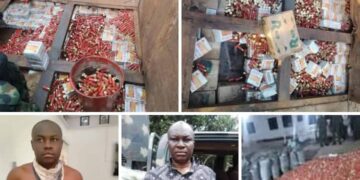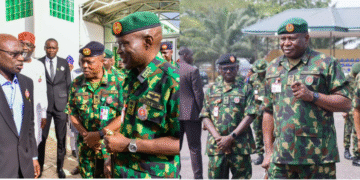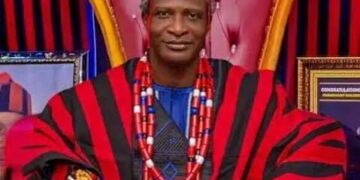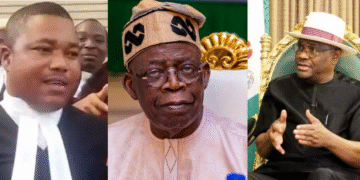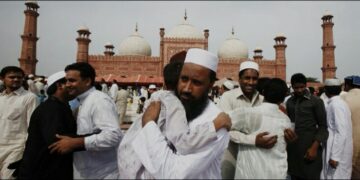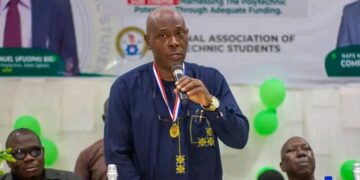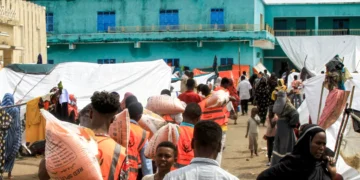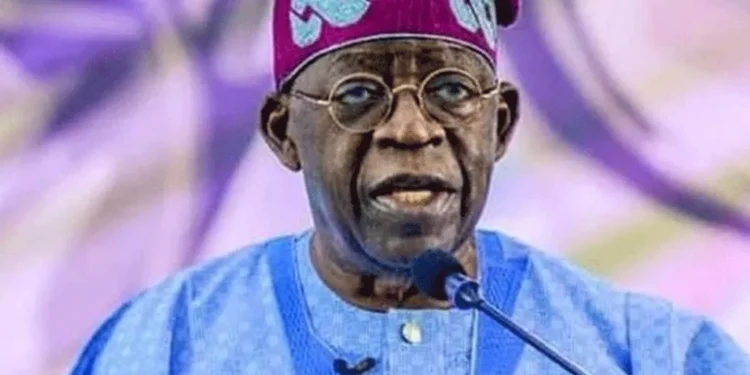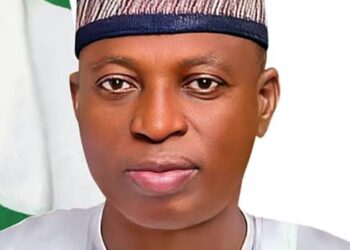There is no doubt that constitutional democracy has receded in qualitative quantity since the past two years of the President Bola Ahmed Tinubu’s administration.
The clearest pathways to ascertaining the deteriorating quality of life in Nigeria and the speedy decline in democracy is to ask about the security of lives and property of citizens. How safe are we as citizens in our homes, in our farms and on the road to either work or to search for work?
The next best question that points towards the diminishing quality of governance in Nigeria is two folds: the cost of living crisis afflicting approximately 90 million households and the non-availability of economic opportunities and jobs for the youths who constitute over 40 percent of the population.
Mass poverty has become a huge and complex problem since this administration purportedly suspended fuel subsidy under the guise of accumulating savings for the state governments to meet up with fundamental expenses necessary for improvement of the living conditions of the citizens in their greatest percentage.
The removal of fuel subsidy generated the ever expanding costs of essential commodities such as foods and basic services. The prices of fuel have continued to ballooned out of control even as cooking gas have become expensive and practically unaffordable.
The costs of energy has since quadrupled and reached the extent that only less than 5 percent of the households in Nigeria can seamlessly afford. And even when the costs of energy or rather electricity has doubled up, there is no certainty that the supplies of electricity would improve. Over half the present population of Nigeria suffers from severe energy crisis/poverty.
However, as stated above, the most troubling situation in Nigeria in the last two years is the heightened state of insecurity across board.
Insecurity is indeed a big problem confronting Nigerians from north to south and from south west, north west, North Central and south east.
The dimensions of insecurity in Nigeria is such that there is a general and necessary clamour for the creation of functional state police. This demand has escalated with the increasing rates of killings of citizens by armed non-state actors. The president who should lead the war against terrorism and kidnappers amongst other armed freelance killers, is busy campaigning for re-election that is almost two years away. The President is distracted by politicking for a second tenure.
The activity of freelance killer gangsters, kidnappers terrorists and bandits have caused horrendous pain to hundreds of thousands of citizens, Just as freedom of movement is gravely limited due to the heightened state of insecurity in Nigeria. People gets picked up virtually from their living residences and held as hostages in the deep forests for a period within which huge ransom must either be paid or the hostages made to pay the Supreme sacrifices. Hostages who delay payment of ransom are routinely used for human organ harvesting by these kidnappers who have become seemingly above the law.
The countrysides of Imo, Anambra, Abia and such other farming and fishing communities in the North East, Plateau, Nasarawa and Benue are afflicted by persistent attacks by terrorists, attacks by armed freelance killers known as unknown gunmen keep happening on constant basis. How to know the extent of insecurity is simply to read the recent public statements by some governors including the major conflicts flashpoints. Traditional rulers are routinely killed by kidnappers.
The public statement of the governor of Niger, Benue and Plateau states are clear body of evidence that terrorists and bandits have posed significant challenges to the citizens, so much so that economic activities are affected gravely.
From Niger state came the information about the easing of restrictions on motorcycles, tricycles by the state government which made the policy due to insecurity.
A statement by his chief press secretary, Ibrahim Bologi, disclosed that the new curfew hours would be from 8:00 p.m. to 6:00 a.m.
Governor Umaru Bago had announced a revision of the curfew hours imposed on the movement of motorcycles and tricycles within the Minna metropolis. The governor said the adjustment was made based on security updates received from the state security committee.
Mr Bago assured the people of Niger that his administration would continue to engage with the security committee to assess the effectiveness of the curfew and make further adjustments as necessary.
He urged citizens to remain law-abiding, restating his administration’s commitment to implementing policies that positively impact their lives and ensure their well-being.
The governor had on April 23 restricted the movement of motorcycles and tricycles from 6:00 a.m. to 6:00 p.m. due to a spike in thuggery.
The restrictions on motorcycles and tricycles were put in place as a proactive measure to address growing insecurity in parts of the state capital, Minna.
Governor Hyacinth Alia of Benue state had in quick succession imposed a range of 24 hours curfews on Ukum Local Government Area, LGA, of the state and other areas of attacks by terrorists and bandits who are actually after the massive landed assets of Benue farmers.
The lockdown followed a night time attack recently on Ayati community in Borikyo Council Ward of the LGA by suspected armed bandits that claimed about 11 lives and left scores with severe injuries.
The attack sparked angry protests by the youths of the area at Sankera, the headquarters of Ukum LGA, who took over the Sankera -Ayati-Sai road and made bonfires on the highway.
A source in the area who spoke on condition of anonymity said “The angry youths who sang war songs matched through the streets to protest the endless attacks.
“They stormed the Ukum Local Government Council Secretariat to confront the Caretaker Chairman and when they did not see him they initially vandalised the building.
From Plateau State, the Governor Caleb Mutfwang was forced to state categorically that the continuous and sustained attacks in communities in the state should not be described as conflicts between herders and farmers but a genocide against the Plateau natives.
Governor Mutfwang, expressed the state’s commitment to the fight against insecurity, saying the Plateau spirit of peace, unity, and hospitality remains unbroken.
Recall that no fewer than 52 persons including children were killed on Friday, 28th March, 2025, after suspected herders’ attacks on communities in Bokkos and Bassa Local Government Areas, LGAs, and their environs of the State
A statement by Governor Mutfwang’s Director of Press and Public Affairs, Gyang Bere, said the governor spoke during the Experience Plateau: Art Meets Fashion in Abuja, saying “In the last week, Bokkos Local Government Area has come under renewed attack by murderers who are desperate to break our spirit. Many advised that we suspend this function, but we realized that these attackers intend to keep us in perpetual mourning, to force us indoors, and to shackle our collective spirit.
“But I said no, life must go on. Plateau must move forward by the grace of God. The genocide on the Plateau will come to an end. What is happening is not a farmer-herder conflict. Let me be clear: it is genocide, and I urge the international community to take note. We know there are powerful forces behind these atrocities. By the grace of God, we will expose them and bring them to justice. Plateau remains a land of peace and hospitality. Our communities will continue to welcome visitors.
The Nigerian Catholic Diocesan Priests Association (NCDPA), in Makurdi Diocese, have just raised the security alarm over continued deadly attacks by armed herdsmen in Benue State.
The association disclosed that more than 50 people had been killed, and 15 Catholic parishes had been forced to shut down in just one month.
Speaking at a press conference on Sunday, the Chairman of NCDPA in Makurdi Diocese, Revd. Fr. Joseph Beba condemned the wave of violence, describing it as a calculated and coordinated effort to wipe out Tiv communities.
He accused security forces, particularly the military stationed in the affected areas, of complicity and inaction.
“Among those affected are Catholic priests, and this has led to the closure of 15 parishes in Makurdi Diocese alone,” Fr. Beba said.
He decried what he described as the military’s silence and passivity while communities were being attacked.
Killings of Nigerians also happened when at least seven people were killed in Nigeria during nationwide protests against the rising cost of living and bad governance. Thousands of protestors have held demonstrations in several Nigerian cities. In some cities, the demonstrations were met with a heavy police presence. The costs of living crises are the immediate causes of these nationwide protests which subsequently witnessed the extrajudicial killings of peaceful protesters by security forces on the direction of the Commander-in-Chief of the Armed Forces.
Six people were killed in the city of Minna, northern Nigeria, when police moved to dismantle a roadblock protesters had erected, blocking a major expressway. Another person was killed in the populous northern state of Kano, as police clashed with demonstrators there. On social media, there were other unconfirmed reports of killings and tear gas used to disperse protests in the capital, Abuja, drawing condemnation from rights groups.
The demonstrations across Nigeria have been organized for the first 10 days of August, in response to harsh economic conditions in Africa’s most populous country. A brutal combination of unprecedented fuel prices, high food inflation, rising electricity tariffs a collapse in the value of the naira, has led to one of the worst economic crises for decades.
In Lagos, much of the city usually bustling with activity and traffic, was eerily quiet, with several shops closed, and a larger police and military presence visible across the city. On Thursday, close to a thousand demonstrators gathered at a main expressway in Ketu, a commercial hub in Lagos, defying police orders to move into a designated area. Ibrahim Suleiman, a trader in Lagos, held a placard reading “end bad governance” and “hunger is killing us”.
“I’m here to fight for my rights. My children don’t go to school, we can’t afford it anymore,” he said. “We’re hungry. A can of beans is 2,200 naira ($1.32) garri is 4,000,” he said referring to a common staple made from cassava, that has more than doubled in price this year. These killings are simply unjustifiable because it is unbelievable that government could deploy armed forces to kill citizens who protests the costs of living crises.
The Group Chief Economist & Managing Director of Research and Trade Intelligence at Afreximbank, Dr Yemi Kale, has also warned that rising youth unemployment in Nigeria is a time bomb and should be considered a national security threat.
Kale said this recently in Lagos at the 2025 Vanguard Economic Discourse, themed ‘Nigeria’s Economic Outlook 2025: Hardship and Pathways to Sustainable Recovery’, attended by significant number of economists and policy makers in Nigeria.
According to the National Bureau of Statistics, the youth unemployment rate (ages 15–24) in the second quarter of 2024 dropped significantly to 6.5 per cent, compared to 8.4 per cent in Q1 2024.
The report read, “The unemployment rate is defined as the share of the labour force not employed but actively searching for and available for work. Unemployment is one of the components of labour underutilisation. The unemployment rate for Q2 2024 was 4.3 per cent, showing an increase of 0.1 percentage point compared to the same period last year.”
Speaking on Wednesday, Kale, who was a former DG of NBS, said, “We also need to tackle unemployment and underemployment, which is above 53 per cent, Nigeria’s demographic dividend risks becoming a demographic crisis. Each year, 4-5 million young Nigerians enter a labour market that isn’t creating jobs fast enough. This isn’t just an economic issue—it’s a national security threat.
If we go by these indices adumbrated above, we can deduce that democracy and the dividends therefrom have diminished due to a lack of good governance and total disrespect to the principles of transparency and accountability.
*Emmanuel Onwubiko is the founder of the HUMAN RIGHTS WRITERS ASSOCIATION OF NIGERIA and was NATIONAL COMMISSIONER OF THE NATIONAL HUMAN RIGHTS COMMISSION OF NIGERIA.


